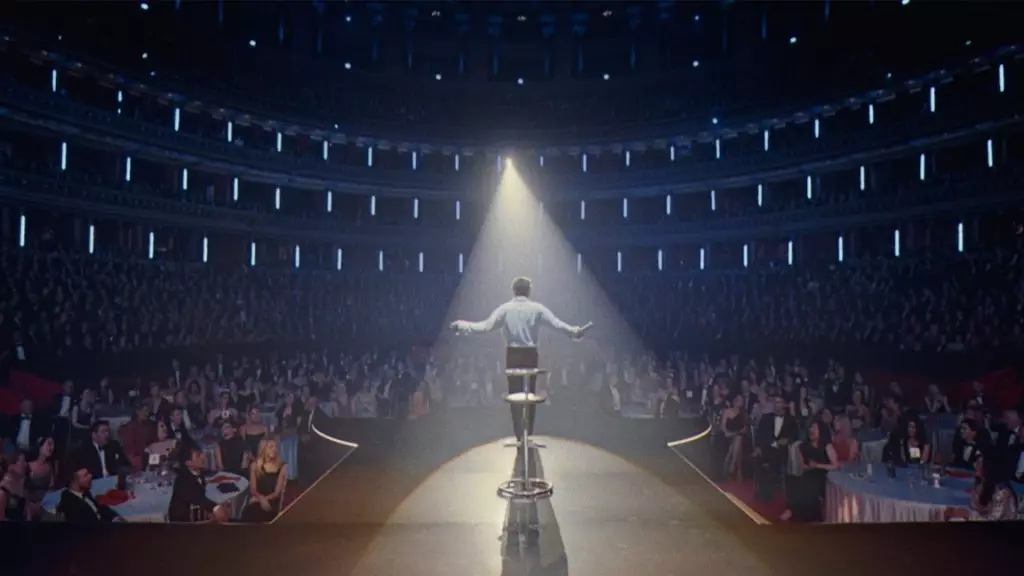In a heartfelt response to the devastating news of Liam Payne’s passing, Robbie Williams has candidly shared his emotions and concerns surrounding the often perilous nature of fame. The former Take That star spoke to Deadline, revealing the profound impact the young singer’s death has had on him, describing it as a “world-wide shock.” At just 31 years old, Payne’s life was cut tragically short, reminding Williams and countless others of the harsh realities that accompany celebrity life.
Robbie Williams’ reflections on fame are steeped in personal experience. He poignantly noted, “I’m sat in depression, and I’m sat in sadness,” emphasizing that these feelings stem from both his own struggles and the loss of a fellow artist. Williams delved into the societal mechanisms that perpetuate the dangers of celebrity culture, questioning whether change is genuinely possible. He challenged the status quo by stating, “Nothing seems to change and if it isn’t me, then who?” This reveals a sense of duty to advocate for a healthier environment for artists, indicating that inaction is complicity in the crisis of mental health that many celebrities face.
In light of Payne’s untimely death, Williams reflects a broader concern: the relentless scrutiny and high-pressure environments that artists endure. He highlights the necessity for a collective effort to reevaluate how society interacts with public figures. As someone who tasted fame at the tender age of 16, Williams draws parallels between his experiences and those of Liam Payne, offering insights into the mental health repercussions that often accompany such early notoriety.
Amidst his mourning, Williams also championed emerging voices in the industry, such as singer-songwriter Chappell Roan. Roan’s critiques of the pressures faced by celebrity artists have resonated with Williams, who remarked that her pushback against these societal norms has been “brilliant.” He expressed his readiness to support those who challenge the rigid expectations placed on artists, acknowledging that the burden of fame is not just an isolated individual issue, but rather a systemic one.
His reflections echo a growing conversation around mental health in the entertainment industry. By paralleling today’s superstar experiences with his own in the ’90s, Williams emphasizes that celebrities can no longer be expected to simply “be grateful” for their fame while simultaneously navigating the turbulent waters of public scrutiny. He highlights a critical shift in awareness regarding the psychological toll of celebrity life, embracing the idea that addressing these concerns is essential for societal progress.
In his tribute to Payne, Williams took time to reminisce about their time together on The X Factor and their shared experiences in navigating fame. Despite referring to his role as a mentor with a tinge of self-deprecation—“I use the word mentored in inverted brackets; I hardly did anything”—he fondly recalled the camaraderie and joy they shared. This personal touch adds depth to his reflections on Payne, showcasing not just the loss of a fellow artist, but the fond memories of a youthful bond.
He articulates a sense of collective grief, stating: “Shock, sadness, and confusion.” The acknowledgment of his emotional turbulence serves to connect with fans who may also be grappling with these feelings. Williams’ words remind us that the impacts of such losses reach far beyond the individual, affecting a broad community of artists and fans alike.
A Call to Action
Ultimately, Robbie Williams’ statements following Liam Payne’s death serve as a powerful reminder of the urgent need for societal change regarding how fame is perceived and lived. It is an invitation to consider the mental health ramifications of public life and an appeal for compassionate approaches to supporting artists. By addressing these issues head-on, we can hope to cultivate a more understanding environment that prioritizes the well-being of those who often become the real victims of their own success. As Williams himself posits, “This isn’t just us celebrities; this is us humans.”


Leave a Reply